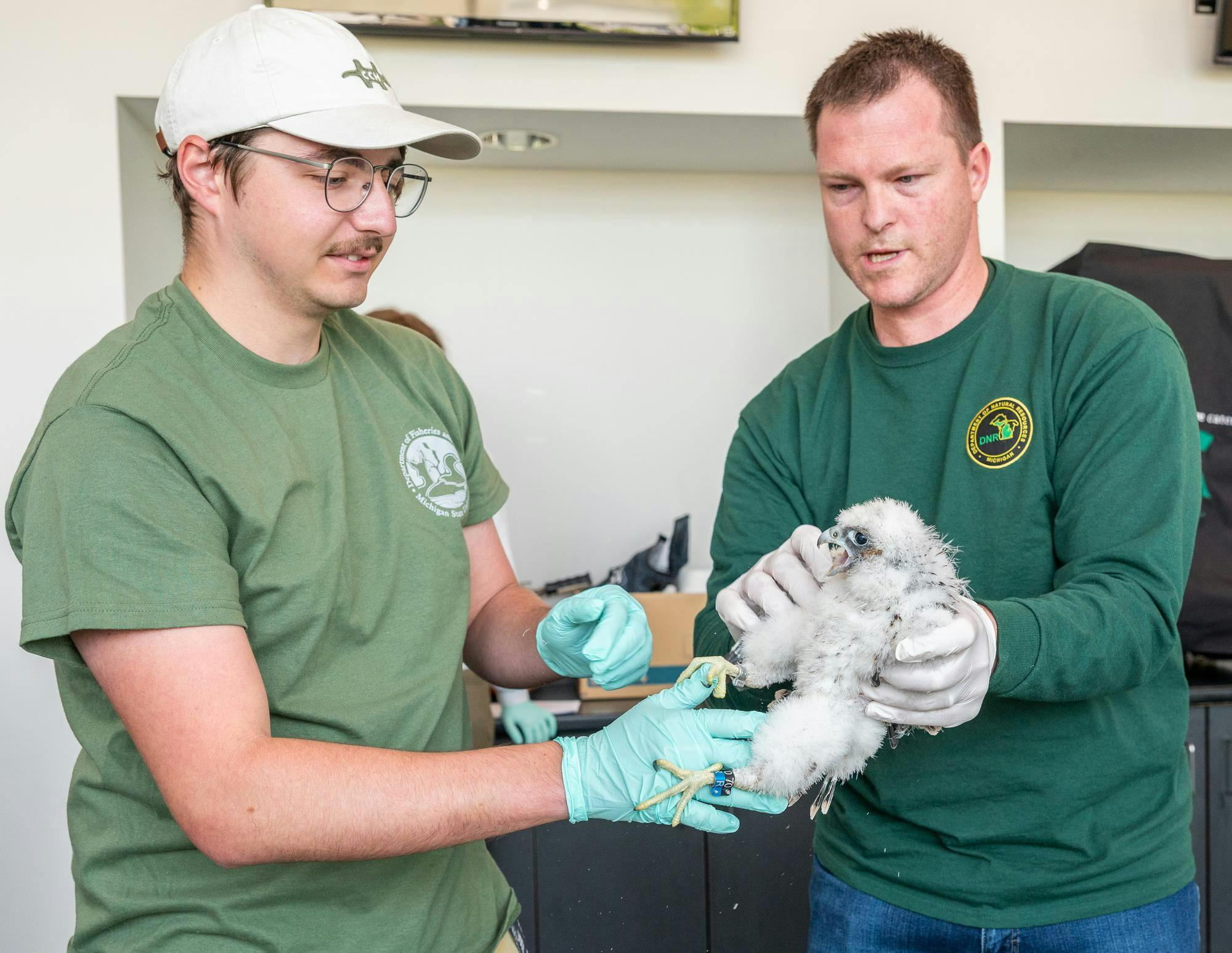MSU recently held a banding ceremony on May 24 for the peregrine falcon chicks, securing tracking bands on four chicks to monitor their movements when they leave the nest in the hopes of helping the species recover, as the falcons have been named a vulnerable species.
The Fisheries and Wildlife club on campus first constructed a falcon nest box on top of the Spartan Stadium in 2021 for research on the species. This attracted the parents of the falcon chicks, Apollo and Freyja, last year. They returned this year to give birth to their four chicks.
According to Endi Piovesana, the Wildlife Chair of the Fisheries and Wildlife Club at MSU, the falcon chicks, Muhammad, Swooper, Egbert and Pickles, had finally gotten to the age where they could be banded.
“We had a DNR wildlife biologist, Chad Fedewa, come in and run the whole procedure,” Piovesana said. “With the help of some Fisheries and Wildlife faculty, he went up to the falcon box, retrieved the chicks and put them in a box, and then brought them back into a room in Spartan Stadium.”
From there, the group worked on each chick individually and gave each one their own unique band to provide individual identification.
“That way, if they end up at another banding station, or if somebody happens to see their band through binoculars or something like that, they can report the sighting to the federal government's banding database and we can record the chicks' survival and migration patterns,” said Piovesana.
Each bird got both a federal and state band. After the banding, the chicks were returned to their nest.
President of the Fisheries and Wildlife Club Molly Engelman said the returning falcons were first spotted in February. By March, they had begun to lay eggs once again, laying four eggs in the nest box. The eggs hatched at the beginning of May, and then the chicks were banded.
“We can understand more about the whereabouts of the birds, such as where they migrate to, their home ranges, their survival rates and other parts of their ecology,” said Engelman.
Support student media!
Please consider donating to The State News and help fund the future of journalism.
Discussion
Share and discuss “Banding initiative on MSU's peregrine falcons works to track chicks” on social media.







